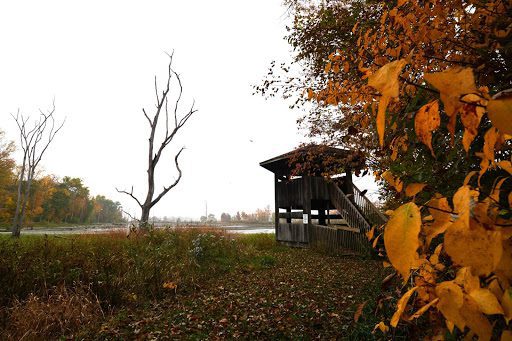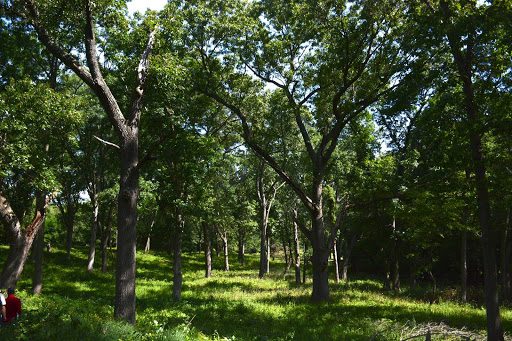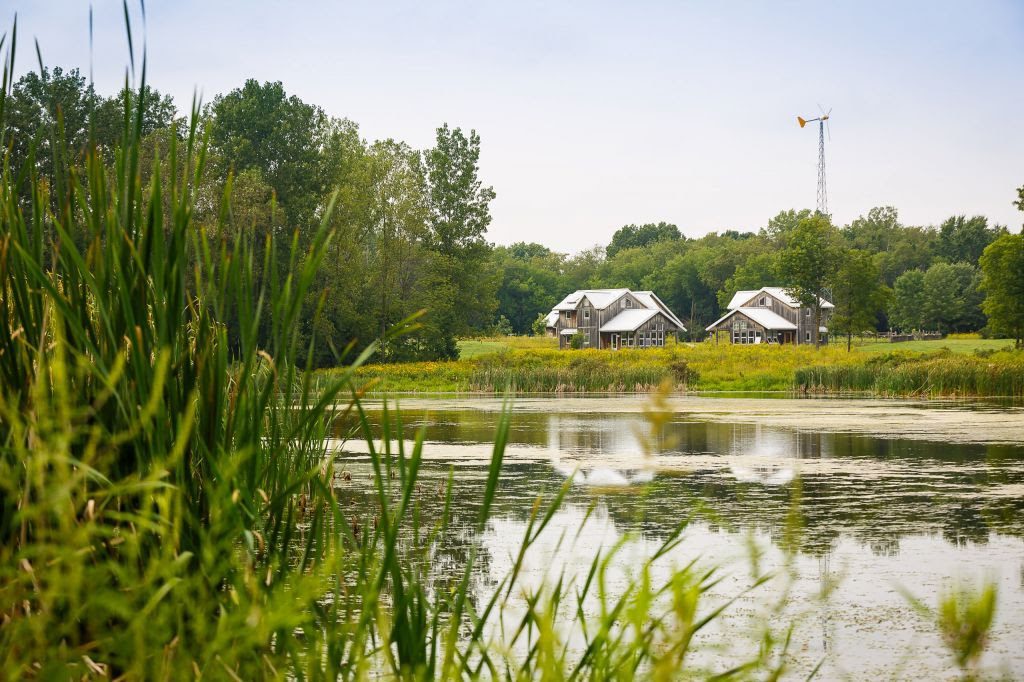From a marine biology station in the Keys to over a thousand acres of environmental preserve, Goshen College’s on-the-ground programs will exceed the expectations of aspiring environmentalists everywhere.
Goshen is a small, private, Anabaptist school in Indiana. Although affiliated with the Mennonite Church USA, Goshen welcomes students from all faiths and backgrounds. Among their core faith practices, Mennonites seek to follow Jesus above nationalism, racism, or materialism. They also “believe in living simply in service to others as a witness to God’s love for the world.”
As a Mennonite college, Goshen has developed a distinct variety of programs that help the next generation live out their passion for creation care.
Unique Programs of Study
If hands-on learning is your thing, Goshen’s programs are designed with you in mind.
Students interested in biology can choose from three different majors: biology, molecular biology/biochemistry and environmental science. All three majors require students to take an interactive approach to their degrees, from international study to taking classes at the college’s Merry Lea Environmental Learning Center.
The environmental & marine science major gives students the option to concentrate in either ecology or earth and climate sciences. Like the biology major, students enrolled in environmental and marine science engage in experiential learning, from studying aquatic life in the Florida Keys during the new semester dedicated to marine biology, to performing controlled burns in the savannas of Kenya. Students also have access to the Witmer Woods Arboretum and the College Cabin, which both serve as prime educational research sites on the Elkhart River.
Multi-Faceted Programs in Sustainability
Students who wish to take a focused look at how people interact with and care for the earth can find sustainability concentrations in food, business management, and community development.
Goshen requires a set of core classes in sustainability that include: Roots of Environmental Crisis, Environmental Economics, Introduction to Sustainability, and Sustainability Policy. These core classes form the foundation of a student’s study of sustainability.
The sustainable food systems major & agroecology minor challenges students to consider how food is grown, distributed, and consumed. A hallmark of this program is a 10-week summer intensive spent living and working on the farm at Merry Lea. The agroecology summer intensive program focuses on sustainable agriculture, from growing food to the nutrition, preparation, and the socioeconomics of food.
The sustainability management major & minor helps students understand the relationship between global ecology and the business world so they can be agents of change for their communities and our world. Students in this major take part in special projects and internships in their related field of study.
For students who are interested in seeing the way sustainability in general can shape and transform our future, the sustainability studies major & minor encourages conversations between students and professionals and community members who are a part of the work to create a more sustainable world. The sustainability studies major includes a semester of Sustainability Leadership: a 13-week fall semester program in which students live with others in Rieth Village (sustainable LEED Platinum-certified “green” buildings), “cook food from produce raised on site and make group decisions about limiting consumption — all while learning about societal and environmental problems.”
A Graduate Education in Environmental Education
For students who want to be equipped to teach others, Goshen offers a Master of Arts in environmental education. This immersive 11-month residency graduate program requires students to live at the Merry Lea Environmental Learning Center, with a one-month practicum in the Bahamas.

Merry Lea Environmental Learning Center and Farm
Many of the environmental science degree programs require students to take classes, and in some cases, live, onsite at the Merry Lea Environmental Learning Center. Merry Lea is a 1,189 acre nature preserve of wetlands, prairie, and savanna. Merry Lea provides environmental education for people of all ages, including opportunities for students at Goshen to teach younger children the value of caring for Creation.
According to their website, Merry Lea’s management “is guided by a Christian theology of earthkeeping. We recognize that we are accountable to God for our stewardship of land in the same way we are accountable for other aspects of our lives.” It is dedicated to: “Providing a natural sanctuary for northern Indiana’s plants and animals; Providing environmental education for people of all ages; Providing a setting for re-creating opportunities that benefit the human body and spirit while not exploiting the land or excessively disturbing its ecosystems.”
Merry Lea also features Rieth Village, which consists of two cottages that provide housing for up to 32 students, and a third cottage that serves as the initial classroom and office building. In 2007, Rieth Village was awarded the platinum LEED certification (55 points) from the U.S. Green Building Council, the highest level possible.
In addition to Rieth Village, Merry Lea is also home to Goshen’s 100-acre sustainable farm, which emphasizes agricultural techniques that do not harm the surrounding ecosystem, such as perennial agriculture, carbon farming, and regenerative agriculture.
The Jonathan N. Roth Marine Biology Station
Goshen owns the Jonathan N. Roth Marine Biology Station located in the Florida Keys. Students can take marine biology at the station in the Keys, or choose to study for a full semester onsite. Each spring term, two to three biology majors are selected to serve as research assistants at the station, and two to three marine biology internships are awarded for biology students each summer.

Goshen Green-Campus Culture
For students who may choose to focus their course of study in something other than the sciences, Goshen offers many opportunities to engage with environmental stewardship. The summer intensives and other programming at Merry Lea is open to any students, even those who would like to transfer credit elsewhere. Goshen is home to the Eco-PAX club, in which students take leadership classes to promote ecological awareness, action, education, and living.
The campus itself is a model for sustainable living. In 2013, President Jim Brenneman announced Goshen College would begin purchasing 100% of its electricity from renewable energy sources, which reduced the college’s carbon footprint by about 45 percent. LED lights are used throughout campus, and a 904 solar panel array meets the full energy needs for the campus chapel, and a SunShower Collection System uses solar energy to heat the shower water in the recreation center on campus. Geothermal heat pumps are used in several buildings on campus.
In recent years, the campus has converted 12 of its 55 acres of lawn into natural prairies of native landscaping, featuring native grasses and perennial wildflowers.
It’s no surprise Goshen is a nationally recognized leader in the field of sustainability among small liberal arts colleges. Goshen was featured in the 2021 Princeton Review Guide to Green Colleges and named one of America’s greenest colleges by the Sierra Club. It has also been recognized by Tree Campus USA, Bike Friendly Campus, and Bee Campus USA. It is a member of the Indiana Green Campus Network and a leader in climate action through the Anabaptist collaborative, Center for Sustainable Climate Solutions.
It’s easy to go green at Goshen! For more information about Goshen College, visit its website at goshen.edu.





 Copyright
2024
Root and Vine
Copyright
2024
Root and Vine